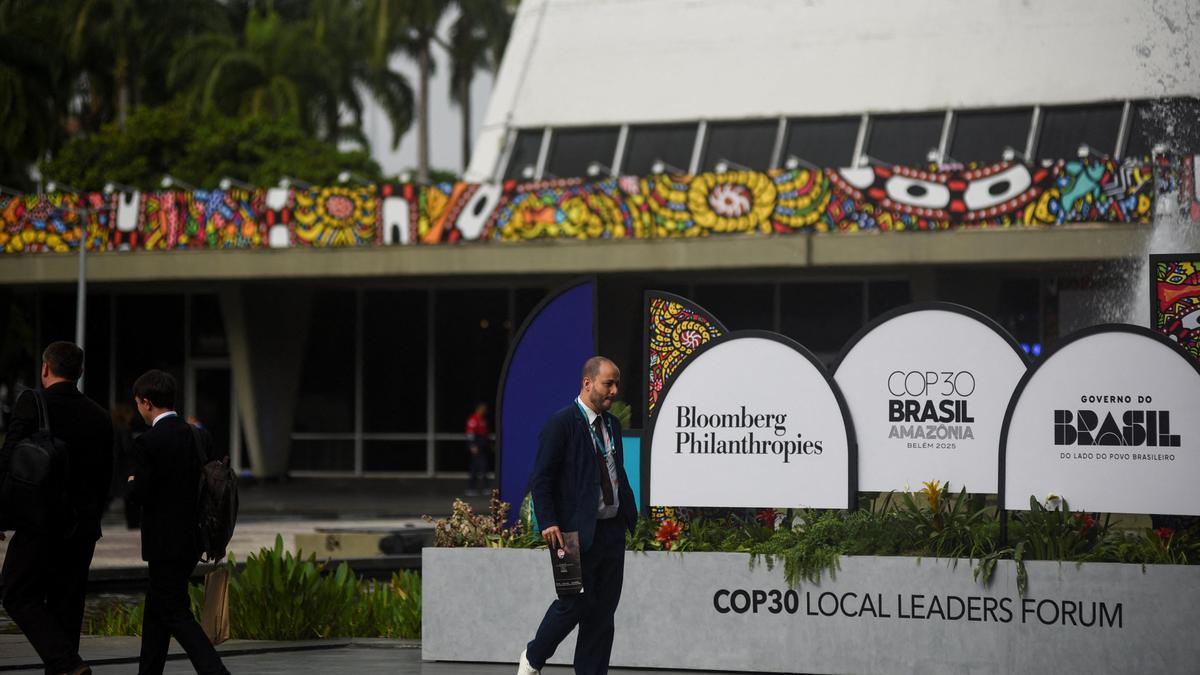Science
India Prepares for COP30 Leaders’ Summit in Brazil

India will send its ambassador to Brazil to represent the country at the COP30 Leaders’ Summit in Belém on November 6 and 7. Environment Minister Bhupender Yadav is set to join the delegation during the second week of the United Nations climate conference. Notably, Yadav did not attend COP29 in Baku, where India voiced strong opposition to a proposed climate finance goal of $300 billion, deeming it insufficient.
Sources indicate that Prime Minister Narendra Modi is likely to miss COP30, scheduled from November 10 to 21. The summit is expected to host over 140 delegations, including 57 heads of state and 39 ministers, under the leadership of Brazilian President Luiz Inácio Lula da Silva and UN Secretary-General António Guterres.
The two-day summit aims to set the political direction for COP30, which marks a decade since the Paris Agreement. Key topics will include forests, renewable energy, adaptation, food security, and climate finance. India plans to emphasize the need for developed nations to restore trust by adhering to past commitments and increasing predictable, grant-based funding for adaptation and loss and damage.
At a pre-COP meeting in Brasília last month, Yadav articulated the need for COP30 to be characterized as the “COP of Adaptation.” He stressed that the focus should shift from dialogue to actionable measures. “Dialogue is important, but action is imperative. We must now focus on implementing ambitious climate measures and, above all, addressing the most pressing challenge: the urgent lack of resources for developing countries to deliver adaptation and mitigation,” he stated.
India advocates for strengthening public finance for adaptation as a means to attract additional support from other sources. The country warns against introducing new processes that could weaken the framework established by the Paris Agreement. For India and the broader Global South, COP30 will serve as a critical test of whether climate conferences can evolve beyond protracted negotiations to deliver accessible and affordable funding.
The UN’s recent “Baku to Belém Roadmap to 1.3 Trillion,” released on Wednesday, outlines a strategy to mobilize at least $1.3 trillion annually by 2035 for developing countries through cheaper loans, guarantees, and debt-relief mechanisms. Brazil plans to leverage the leaders’ summit to unveil the “Tropical Forest Forever Facility,” aimed at raising $125 billion for forest protection via results-based payments over the next decade.
These initiatives, alongside the UN roadmap, are anticipated to dominate finance discussions in Belém. The Indian delegation is expected to highlight the country’s contributions through initiatives such as the International Solar Alliance, the Coalition for Disaster Resilient Infrastructure, and the International Big Cat Alliance as examples of effective and collaborative multilateralism.
COP30 is unfolding against a complex geopolitical landscape, marked by the United States’ withdrawal from the Paris Agreement and various developed countries reassessing their climate strategies in light of economic and energy security concerns. The outcomes of this summit could have lasting implications for global climate action and financing, especially for developing nations that rely heavily on international support.
-

 World4 months ago
World4 months agoSBI Announces QIP Floor Price at ₹811.05 Per Share
-

 Lifestyle4 months ago
Lifestyle4 months agoCept Unveils ₹3.1 Crore Urban Mobility Plan for Sustainable Growth
-

 Science3 months ago
Science3 months agoNew Blood Group Discovered in South Indian Woman at Rotary Centre
-

 Sports3 months ago
Sports3 months agoBroad Advocates for Bowling Change Ahead of Final Test Against India
-

 World4 months ago
World4 months agoTorrential Rains Cause Flash Flooding in New York and New Jersey
-

 Top Stories4 months ago
Top Stories4 months agoKonkani Cultural Organisation to Host Pearl Jubilee in Abu Dhabi
-

 Science4 months ago
Science4 months agoNothing Headphone 1 Review: A Bold Contender in Audio Design
-

 Top Stories4 months ago
Top Stories4 months agoAir India Crash Investigation Highlights Boeing Fuel Switch Concerns
-

 Sports3 months ago
Sports3 months agoCristian Totti Retires at 19: Pressure of Fame Takes Toll
-

 Business4 months ago
Business4 months agoIndian Stock Market Rebounds: Sensex and Nifty Rise After Four-Day Decline
-

 Politics4 months ago
Politics4 months agoAbandoned Doberman Finds New Home After Journey to Prague
-

 Top Stories4 months ago
Top Stories4 months agoPatna Bank Manager Abhishek Varun Found Dead in Well









